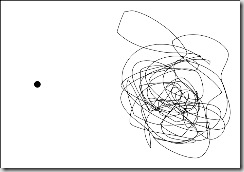[this is a version of a post which first appeared on my blog From the Front of the Choir]
Last time I wrote about whether it’s better to be over-rehearsed or under-prepared. I talked about people who like to spend a long time working on one thing in order to perfect it versus those who like to do just enough work on a piece before moving onto something new.

We can characterise these two kinds of people as specialists (focusing in depth on just one thing) and generalists (having a wide range of interests and influences). I want to look at how these apparently opposing approaches affect singing and choir leading.
There are two kinds of people in the world – those who divide the world into two kinds of people, and those who don’t!
You can divide the world up in lots of ways like this. Here are two different approaches to life, music, the universe and everything:
We can think of these two kinds of people as:
I was once told a story about these two different approaches. It was to demonstrate the basic differences between how we do things in the West, and how those in the East tackle the same problems.
Two people are in a field looking for buried treasure. One is Japanese, the other British (sorry, it’s racial stereotype time!).
The Japanese person chooses a likely looking spot in the middle of the field and starts digging. And keeps on digging in the same spot, the hole becoming deeper and wider with time.
The British person also chooses a likely looking spot and begins to dig. But after a reasonable depth, it is clear the treasure is not there, so they choose another spot and try that.
Slowly the Japanese person turns the whole field into one big hole, and finally uncovers the treasure. In the meantime, the British person has dug many, many holes which cover the entire area and also finds the treasure.
Specialists will tend to dig in the same spot, going deeper and deeper into a topic, becoming more expert in one particular area in their chosen field.
Generalists will look at a wide range of possibilities, checking each one out until they get an overall view of the whole field interest.
The specialist will want to know a lot about the song that’s being worked on. They will find out all about the meaning, where it comes from, what different versions there are. They like to spend a long time rehearsing the song in order to tease out all its subtleties and to really go deep into the music.
Over time, the specialist will slowly increase their repertoire until they have a small body of songs within the same genre. They will know a lot about the performance styles of these kinds of songs and will always attempt an ‘authentic’ performance.
The generalist often choose songs that simply speak to them and move them. They tend not to be too interested in the background of a song, but are more concerned with bringing it to life in the here and now. They rehearse quickly and effectively until the song is pretty much up on its feet before moving onto the next song.
Over time the generalist will build up a huge repertoire ranging over a large number of different styles, genres and cultures. Performances will always be rich and varied with songs presented in interesting and different arrangements and formats.
Personally I’m always looking for new challenges, new kinds of song, new adventures. I can get bored quite easily so I’m very much in the ‘generalist’ camp.
Of course, this division into two types is very artificial. The ideal choir leader or singer is always a mix of both these approaches.
But which type do you tend to be? What about your choir leader? What if there’s a mismatch between singers and choir leader in their approach? Can you think of anything I’ve left out in my upsides and downsides?
Do drop by and leave a comment!
Chris Rowbury: chrisrowbury.com